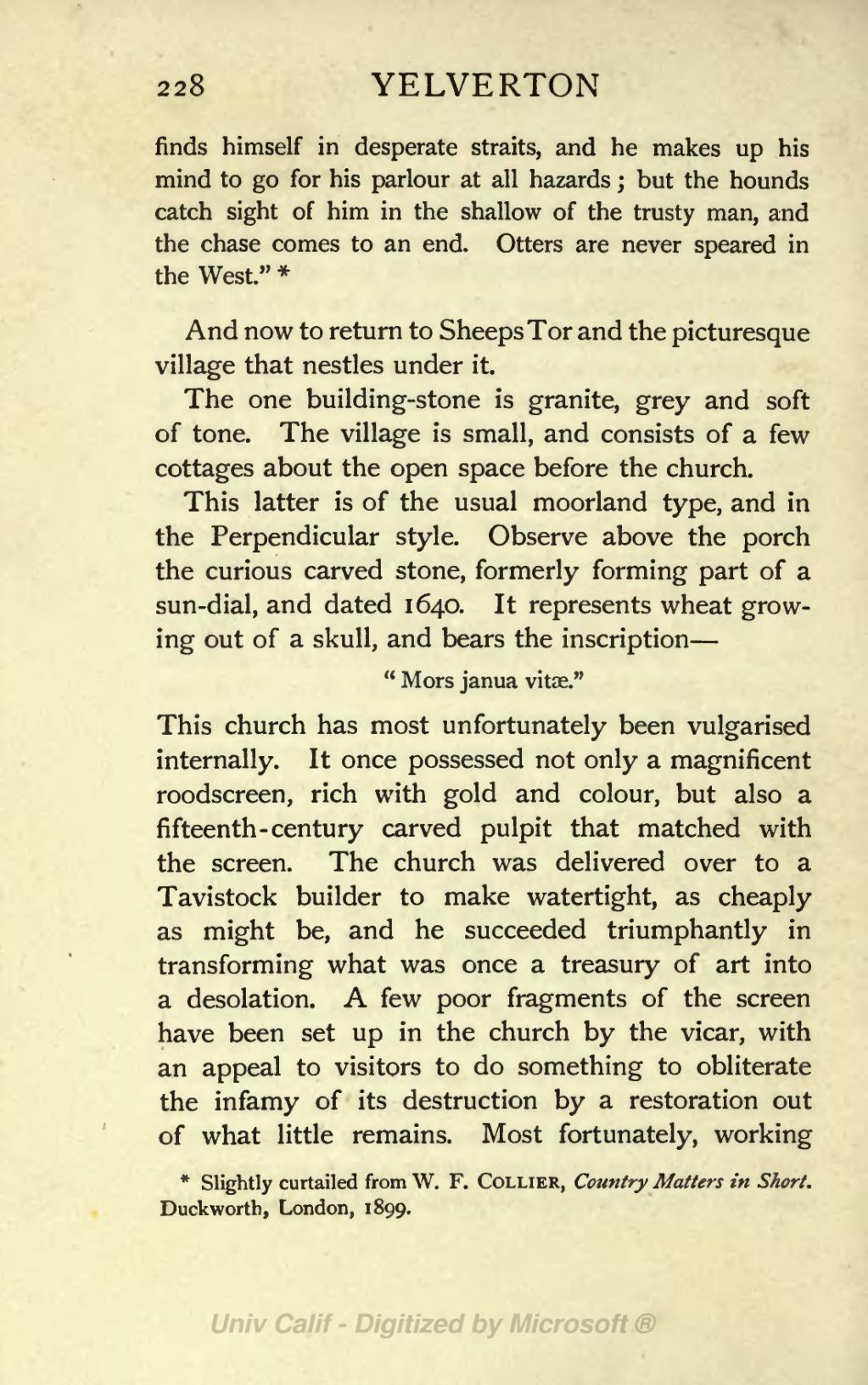finds himself in desperate straits, and he makes up his mind to go for his parlour at all hazards; but the hounds catch sight of him in the shallow of the trusty man, and the chase comes to an end. Otters are never speared in the West."[1]
And now to return to Sheeps Tor and the picturesque village that nestles under it.
The one building-stone is granite, grey and soft of tone. The village is small, and consists of a few cottages about the open space before the church.
This latter is of the usual moorland type, and in the Perpendicular style. Observe above the porch the curious carved stone, formerly forming part of a sun-dial, and dated 1640. It represents wheat growing out of a skull, and bears the inscription—
"Mors janua vitæ."
This church has most unfortunately been vulgarised internally. It once possessed not only a magnificent roodscreen, rich with gold and colour, but also a fifteenth-century carved pulpit that matched with the screen. The church was delivered over to a Tavistock builder to make watertight, as cheaply as might be, and he succeeded triumphantly in transforming what was once a treasury of art into a desolation. A few poor fragments of the screen have been set up in the church by the vicar, with an appeal to visitors to do something to obliterate the infamy of its destruction by a restoration out of what little remains. Most fortunately, working
- ↑ Slightly curtailed from W. F. Collier, Country Matters in Short. Duckworth, London, 1899.
